MercoPress. South Atlantic News Agency
Argentina
-
Tuesday, March 8th 2011 - 23:44 UTC
Falklands’ second visit for Argentina’s ‘Rugby without borders’

Scheduled to arrive in Stanley, Falkland Islands on Saturday are members and supporters of Rugby Without Borders Foundation, an Argentine non-profit organisation aimed at using sport as a way of reaching out to people and creating friendship, love, trust and peace.
-
Tuesday, March 8th 2011 - 23:04 UTC
Argentine thieves empty a house but take pity on victims and return a puppy

Some thieves took pity on their victims and returned a puppy taken along with other loot from a house on the outskirts of Buenos Aires, the Argentine press reported.
-
Tuesday, March 8th 2011 - 11:15 UTC
Falklands/Malvinas: Timerman calls for dialogue and lobbies G24 members

Foreign Affairs minister Hector Timerman renewed Argentina’s claims over the disputed Falklands/Malvinas this time before the new authorities of the G-24 or UN Decolonization Committee, who according to Argentine sources rejected “all forms of colonialism and occupation”.
-
Tuesday, March 8th 2011 - 05:05 UTC
Argentina’s defence budget forecasted to reach 1.3% of GDP by 2015
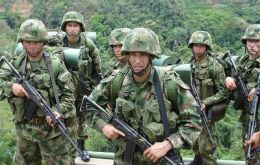
Argentina, similar to other Latin American countries, is increasing its defence budget at a robust pace, according to Research and Markets, a defence procurement news agency based in Alabama.
-
Tuesday, March 8th 2011 - 04:34 UTC
Cyndi Lauper sings with stranded passengers in Buenos Aires airport
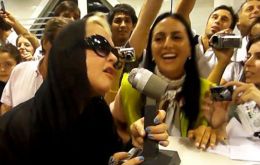
After flights in Buenos Aires were cancelled time after time on Friday, '80s singing icon Cyndi Lauper took to the airport's announcement system to perform for her fellow stranded passengers.
-
Tuesday, March 8th 2011 - 04:23 UTC
Kirchnerites’ deny any intention from Cristina to run for a third period

Political associates reiterated that there are no intentions of Argentine president Cristina Fernández de Kirchner to seek for a third period if the Head of State should end re-elected on next October presidential elections. For such purpose a constitutional amendment would be needed.
-
Monday, March 7th 2011 - 01:35 UTC
Falkland Islands: other points of view

Since mid January when Dr Graham Pascoe and Peter Pepper first published an article under the heading of “Falklands’ Facts”, Argentina’s former Ambassador and Deputy Foreign Affairs minister during the Menem administration Andrés Cisneros has systematically replied with his own point of view, establishing an illuminating debate on an issue that is controversial but also passionate.
Now Anglo-argentine Henry Whitney who has the benefit of understanding both cultures and idiosyncrasies has joined the debate. -
Saturday, March 5th 2011 - 07:12 UTC
Argentina soy export terminals resume full activities
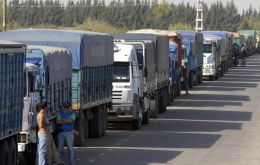
Argentine dock workers reached a wage deal on Friday and called off a three-day-old protest that paralyzed two major soy export terminals and stopped 20 grains ships from loading, a union leader said.
-
Saturday, March 5th 2011 - 06:40 UTC
Argentina’s construction activity in January increased 11.7% over a year ago
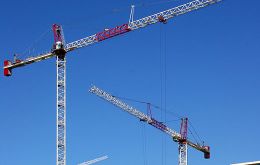
Argentina's construction activity grew at a slower pace in January, with many builders away on summer vacation, according to the national statistics agency, Indec.
-
Saturday, March 5th 2011 - 03:29 UTC
USDA downplays upbeat forecasts of Argentine soybean harvest
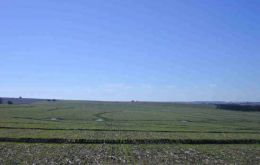
US Department of Agriculture attaches in Buenos Aires have warned against upbeat forecasts for Argentina's soybean harvest, saying many farms missed out on crop-reviving rainfall.
